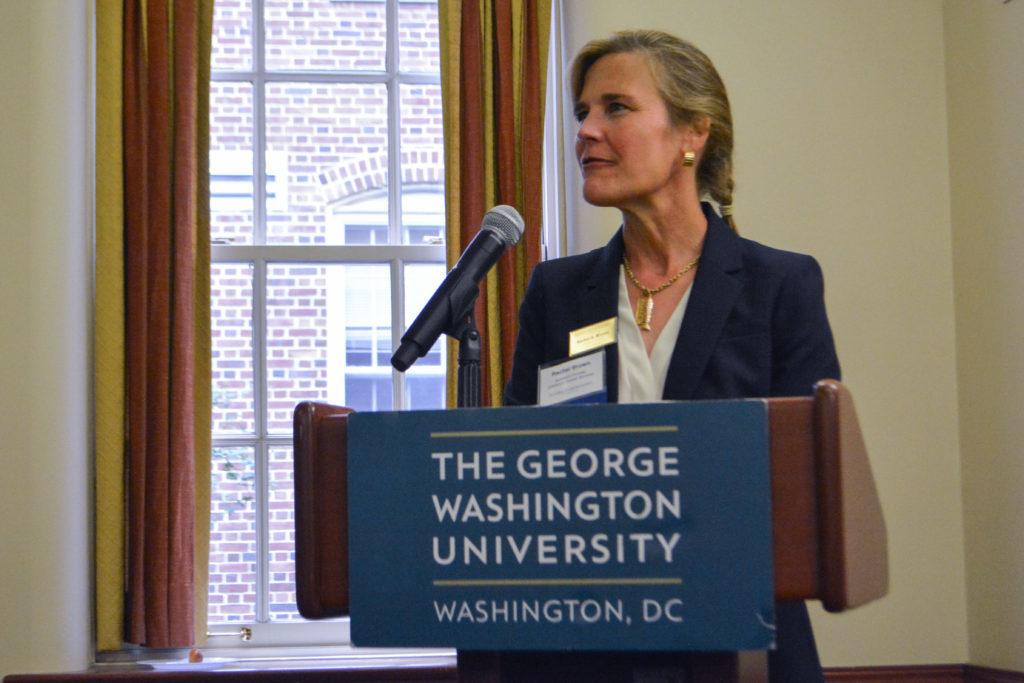The Center for Career Services is cracking down on students who don’t show up for employer events.
Michael McKenzie, the center’s managing director, sent an email to the student body last week urging students who commit to a career event to actually show up, after up to 70 percent of students who registered for events with employers didn’t attend in recent weeks.
Students and experts said last-minute obligations can often get in the way of attending events but that not showing up can potentially jeopardize student opportunities and negatively impact the reputation of a university, because employers may decline to return after showing up for a sparsely attended event.
“It may be OK to say you are going to a friend’s party and change your plans at the last minute, but this is seen as unprofessional in the workplace,” the email read.
Rachel Brown, the assistant provost for University Career Services, said this academic year on average about 50 to 70 percent of students who sign up for an event didn’t show up.
In the email to students, McKenzie urged students to turn on event email remainders that notify students 24 hours before the event and again one hour before. He said Handshake’s RVSP policy requires a 24-hour cancelation notice and after five no-shows, students are blocked from Handshake – GW’s job search database – and have to meet with a career coach to regain access.
“We want to make it clear that it does matter if a student signs up and doesn’t attend a professional event.”
Brown said after career services instituted the policy last academic year, “no show” rates dropped to 30 percent. But in recent weeks, she said employers from the finance to defense industries have seen poor turnout, and at one employer event, 53 students signed up but only 15 attended.
“It is easy to click a RSVP button in the moment while not thinking through consequences of not attending, especially when our culture is trending in that direction where one’s no-show doesn’t really matter,” she said. “We want to make it clear that it does matter if a student signs up and doesn’t attend a professional event.”
Still, Brown said students are not required to RSVP for most career events and these programs are still largely well-attended.
In the email to students, McKenzie said employers and alumni can check the students who register but don’t attend. When attendance is lower than expected at events, employers “question whether it is worth the time to come to recruit at GW.”
Students said a variety of obligations can prevent them from going to career events they’ve previously committed to attending.
Junior Theresa Ranni said she signed up to attend a finance panel last academic year but ended up not going because of a scheduling conflict with a student organization.
“I didn’t show up because I had other, more pressing issues that needed to be taken care of immediately,” she said. “The information on whether or not the finance industry is a good idea for me wasn’t so relevant at the moment, and it was something that I could’ve caught up on.”
Sophomore Avalon Potter said she signed up for an internship information session through career services earlier this academic year but was unable to attend the session she signed up for because of a last-minute work event.
“There are plenty of students that have commitments on campus and they come up unexpectedly,” she said.
“Offices don’t hold workshops because no one comes, but then students complain because there are no workshops.”
Kate Brooks, the executive director of Vanderbilt University’s career center, said her office has not often struggled with low attendance or students not showing up for events in part because it does not usually require RSVPs for events.
Brooks said when students don’t show up for events they signed up for, it “wreaks havoc for everyone,” because the event planners usually order excess food or rent a bigger room than needed, and employers can become discouraged and decline to visit the school in the future.
“It then becomes a vicious cycle: offices don’t hold workshops because no one comes, but then students complain because there are no workshops,” she said.
Susan Call, the associate director of employer relations at the career center at Syracuse University, said the center advertises events through an employment portal similar to Handshake and circulates them through students’ emails.
Call said she has seen both ends of the spectrum – either a lot of students show up to events with hardly any RSVPs, or students don’t attend events they committed to attending. She said after 60 students registered but only three showed up to one career event, the featured employer decided not to host any more recruitment events on campus.
“It not only was a flop that evening and wasted food, time and resources, but we were demoted on the employer list in future years,” she said.





